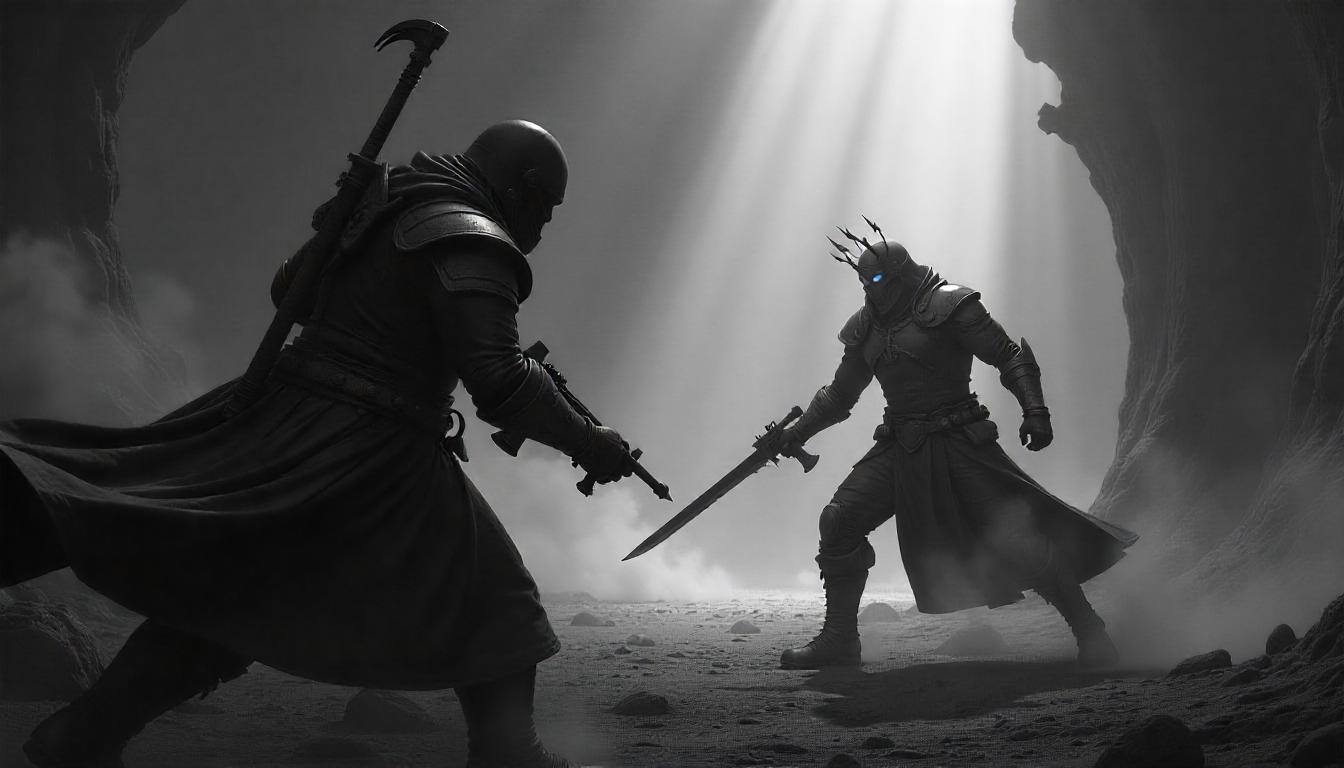When it comes to action RPG combat, few titles in recent years have made as much impact as Diablo 4 and Elden Ring. Both offer deep, satisfying gameplay, yet they take vastly different approaches to combat. This breakdown will analyze key combat mechanics, including speed, difficulty, build variety, skill expression, and PvE/PvP experiences.
Speed & Flow
- Diablo 4: Combat in Diablo 4 is fast, fluid, and often overwhelming, with hordes of enemies swarming players. The game relies on real-time cooldown management, AOE damage, and high mobility skills to keep encounters engaging. Attacks and abilities are designed to chain together seamlessly, rewarding quick reactions and positioning rather than precise inputs.
- Elden Ring: The combat in Elden Ring is more measured and tactical, built around stamina management, precise timing, and animation commitments. Dodging, blocking, and counterattacking play crucial roles, requiring deliberate movement and strategy. Compared to Diablo 4, it’s significantly slower but demands more nuanced execution.
Difficulty & Challenge
- Diablo 4: The difficulty in Diablo 4 scales dynamically with world tiers, enemy density, and affix combinations. While bosses have predictable patterns, the challenge often comes from managing onslaughts of enemies and unpredictable elite modifiers. Players who rely too much on single strategies might struggle in high-level Nightmare Dungeons or Helltide events.
- Elden Ring: Difficulty in Elden Ring is static yet punishing, emphasizing trial-and-error learning. Boss fights are pattern-based but highly variable, featuring delayed attack timings, hyper armor, and multi-phase mechanics. Enemies are designed to punish recklessness, making each encounter feel more intense.
Build Variety & Customization
- Diablo 4: Offers class-based customization with skill trees, legendary aspects, and Paragon boards that allow for endless build experimentation. However, viable late-game builds are often constrained by meta shifts and balance patches. For example, a high-tier Sorcerer build might revolve around Chain Lightning or Blizzard, but buffs/nerfs can dramatically shift viability.
- Elden Ring: Provides near-limitless freedom through stat allocation, weapon scaling, Ashes of War, and talismans. There’s no rigid class structure post-character creation, meaning a player could transition from a Faith-based incantation caster to a Dexterity-focused katana user over time. The meta is less dictated by patches and more by player innovation.
Skill Expression & Player Mastery
- Diablo 4: Success is often dictated by knowledge of synergies and gear optimization. Twitch reflexes matter, but decision-making and build efficiency play a greater role than raw mechanical skill. Kiting, proper use of cooldowns, and resource management define high-level play.
- Elden Ring: High-level play rewards mechanical mastery, enemy knowledge, and adaptability. Skill expression shines through perfect dodge timings, parry windows, spell combos, and stamina conservation. A seasoned player can take down Malenia with just a dagger and no armor, whereas an over-leveled player can still struggle without proper execution.
PvE & PvP Experience
- PvE:
- Diablo 4: PvE is co-op centric, featuring open-world activities, public events, world bosses, and dungeons. Combat is designed around synergizing party compositions for maximum efficiency.
- Elden Ring: PvE is solo-driven but can incorporate co-op via summoning, and the world is meticulously crafted to encourage exploration and discovery.
- PvP:
- Diablo 4: Limited and imbalanced, existing only in specific PvP zones where gear superiority often determines fights rather than player skill.
- Elden Ring: Dynamic and skill-based, offering duels, invasions, and arena fights, where players utilize builds in highly unpredictable encounters.
Conclusion
Diablo 4 excels in fast-paced, build-driven, co-op ARPG combat, while Elden Ring thrives in meticulous, player-skill-driven, atmospheric combat. If you prefer min-maxing stats and dominating hordes, Diablo 4 is your game. If you enjoy grueling one-on-one encounters and deep combat intricacies, Elden Ring is unmatched. Both titles are combat masterpieces in their own right, but they cater to vastly different player experiences.






Leave a Reply